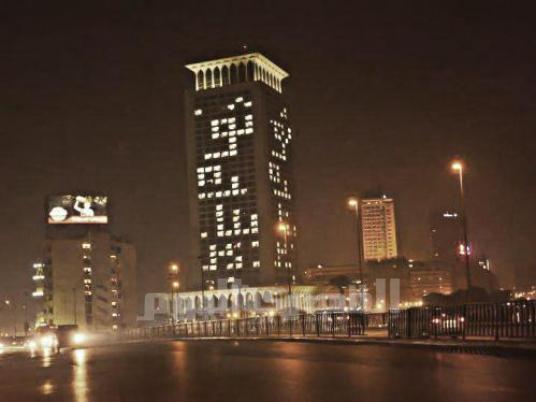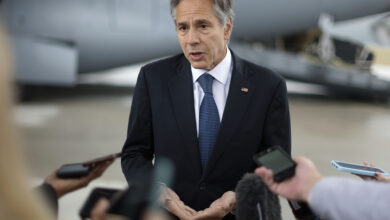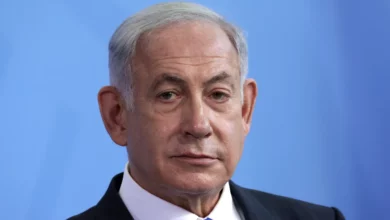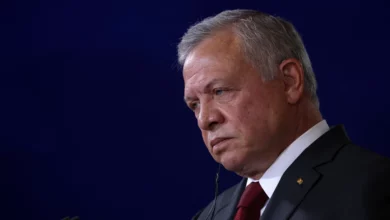
During the Mubarak years, Egypt lost a great deal of its international clout as the main regional power broker and — during the Nasser years — the reference point for Arab politics. Most presidential candidates see that Egypt has reached a state of political subordination, especially to the US, on issues such as the Israeli-Palestinian conflict, and has lost much of its former regional significance.
The foreign policy section of presidential campaign platforms gives candidates a chance to show how they would like Egypt to be seen vis-à-vis its relationship with the world. It also provides ample opportunity to garnish their platforms with glorifying terms and a relative perspective of the development they intend to undertake internally, since Egypt’s bargaining ability externally will be largely affected by its development internally.
Muslim Brotherhood candidate Mohamed Morsy centered his foreign policy platform around “achieving international leadership.” Nasserist Hamdeen Sabbahi says that Egypt’s dignity abroad would be restored only through the “independence of Egypt’s will.” Independent candidate Abdel Moneim Abouel Fotouh used the same words as Sabbahi to describe the prerequisite needed to restore Egypt’s significant strategic role in regional politics.
Lawyer and activist Khaled Ali underpins his foreign policy with the need for it to be “befitting of a great revolution and deep-rooted people who deserve better.” Former Minister of Foreign Affairs Amr Moussa takes a more sober approach to his foreign affairs platform, saying that the revolution must have “positive reflections on Egypt’s foreign policy.”
Moussa is the only candidate who integrates the prerequisite need for hard power in the form of military might and a robust economic standing in order to enhance Egypt’s soft power with regards to its political standing worldwide.
Former Prime Minister Ahmed Shafiq’s program does not say much of anything besides broadly affirming the need for Egypt to have an “active role on the international scene.”
Beneath the foreign policy headlines lies a host of important considerations for Egypt on the foreign policy front that most candidates did not fail to address in their own way. The main issues for candidates this time around are Israel-Palestine, the Nile Basin and African relations, Egyptians abroad, Egyptian-American relations, and strategic bilateral partnerships. Some assign different degrees of importance on each and attach differing levels of national security concerns to each issue.
As a popular issue and consistent matter of concern for Egyptians, every candidate had to address Camp David, and Egypt's stance towards Palestine and the Palestinians. Khalid Ali calls Egypt’s position with regard to Palestine during Mubarak’s reign disappointing. Ali, Sabbahi, Abouel Fotouh and Morsy all assert Egypt’s need to honor its treaties, but also hold the view that Israel has not kept its end of the bargain, which could potentially nullify the agreement. Sabbahi is the most radical in his assertions, refusing to use the word Israel in his program, preferring to call it the “Zionist entity.” These candidates all look for a pointed departure from Egypt’s previous policies towards Palestinians, which Abouel Fotouh likened to a “lying down position” during one television interview. They do not discount the possibility of unilaterally supporting Palestinians by opening the Rafah border crossing and working with Islamist Hamas as well as secular Fatah, whereas the Egyptian government before preferred dealing with Fatah.
Shafiq does not indicate anything profound or any change regarding how he would handle the Palestinian situation. Unlike all of the other candidates, he does not even hint to there having been anything wrong with Egypt’s stance and actions on the issue during the Mubarak years.
Moussa, who was Mubarak’s most vocal foreign minister in criticizing Israel, seems more hesitant to engage in unilateral support of the Palestinian cause, but would like to focus on bolstering Palestinian statehood through existing accords and coordinated efforts with other Arab countries. He does say that he would like for Egypt to be more vocal on supporting the Palestinian cause “as an ethical obligation.”
For Moussa, the immediate Arab sphere of influence is Egypt’s most important one. He would call for the implementation of a “new Arab order, through which Egypt would return to its regional leadership.” Sabbahi’s platform also states the need to build a new Arab order, however, for him this new order is built around the Arab Spring and the tide of change going through many Arab countries presently.
He shares Abouel Fotouh’s priority of recalibrating the Arab League in a way that would make it effective. Abouel Fotouh would like to transform the organization in a way that would help achieve “unity; Arab political, economic and political integration.”
Morsy sees the Arab sphere as the only truly important one in which Egypt should aim to play a role, calling for a “Joint Arab Defense Force.” Morsy seems the most eager to strengthen relations with the Gulf Cooperation Council (GCC) countries. During a television interview he said that as president, Saudi Arabia would be the first country he visits.
However, the Brotherhood’s Renaissance project, which is the platform Morsy represents, also focuses on Egypt regaining its footing in African politics. The project calls for a general plan including diplomatic missions, enhanced trade agreements, and aid to the more impoverished countries as a way to do this.
Sabbahi once said during a March television interview that he would focus mostly on Egypt’s sphere of influence in Africa before the Arab world. “I would especially focus on Nile River Basin countries, because securing water for Egypt is one of the most important things now,” he said.
Sabbahi was a member of the Egyptian delegation that went to Ethiopia to dissuade its government from building any dams that might affect Egypt’s water supply. He believes that bilateral partnerships with East African countries are the way to go to enhance Egypt’s diplomatic standing with them. Sabbahi has the most robust plan for increasing African relations that includes details on every method of cooperation between Egypt and the rest of the continent.
Shafiq’s platform says the same thing but in much more simple terms.
It must be noted that, while most of the candidates here have articulated some robustness in their platforms, Ahmed Shafiq’s written platform only offers bullet points on issues he has rarely addressed or elaborated on during interviews. He does see Sudan and Libya as the major venues for regional partnerships, given their proximity and trade potential.
Others see Iran and Turkey as major potential partners. Sabbahi, Ali, and Moussa would like to develop trade agreements with both industrial giants in tandem with other agreements. Moussa sees the Organization of Islamic Countries as the perfect venue to solidify these attachments. Morsy specifies the need to focus on improving relations with Islamic countries, but both in his interviews and his platform does not single out Iran for bilateral relations.
On the other hand, most candidates found it difficult to deviate from the same line towards the United States. They all indicate a need to depart from being the US’s subordinate in the region, instead engaging on mutual interest. The sentiment in Egypt is decidedly anti-American, the latest evidence of which was the caustic dialogue surrounding the alleged American citizenship of the mother of former candidate Hazem Salah Abu Ismail. Even so, Shafiq repeatedly stated the importance of the current Egyptian-American relationship, and said on television that the US would be the first foreign country he would visit as president. In his program, which came out recently, Shafiq is ironically the only candidate who doesn’t mention the US in his foreign policy section.
Another element of universal concern among the candidates is the status of Egyptians abroad. Moussa points to the absence of any political or legal support for Egyptians abroad now to help them with problems they may face as labor in foreign countries — especially in the GCC — and allow them to actively participate in Egyptian politics.
What is abundantly clear in going through most of the candidates’ platforms — except for Shafiq's — is that there is a lot of work to be done on the foreign policy front. Most candidates treat every issue as a blank slate and opportunity for a new beginning of Egypt’s relationship with the world.




